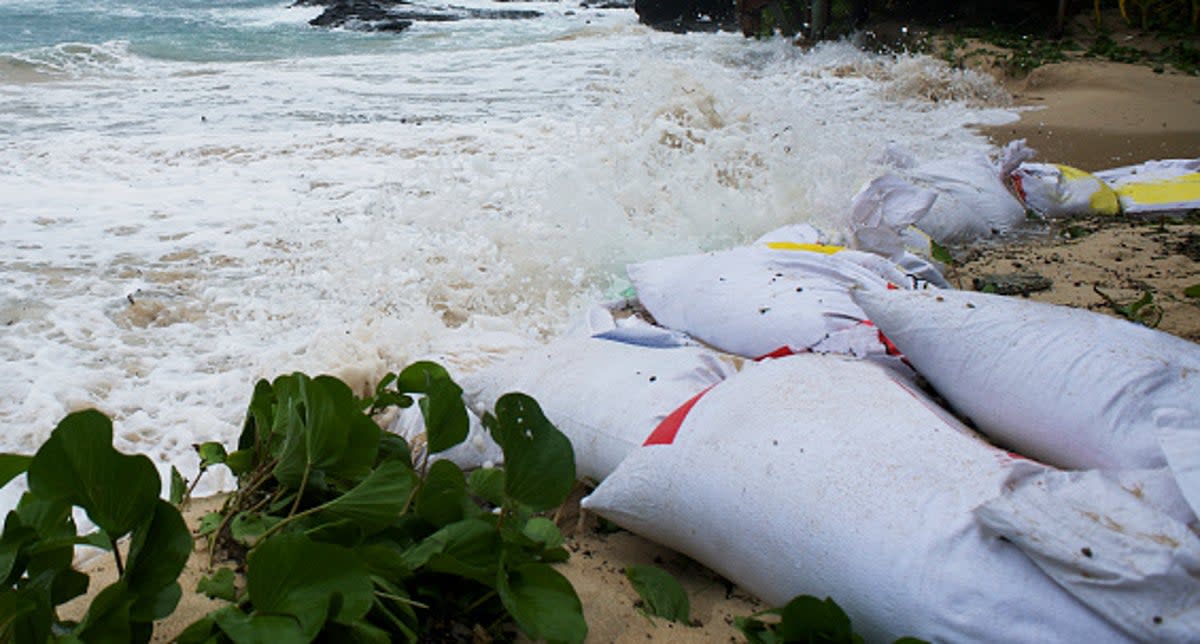Climate change a greater threat to security than war, says Fiji

Climate change poses a greater threat to the security of the Asia-Pacific region than conflict, a top Fiji offcial told a defence summit.
Addressing the Shangri-La Dialogue, Asia’s key security meeting, Inia Seruiratu, Fiji‘s minister for defence, said: “In our blue Pacific continent, machine guns, fighter jets, grey ships and green battalions are not our primary security concern.
“The single greatest threat to our very existence is climate change. It threatens our very hopes and dreams of prosperity.”
Seruiratu’s comments marked a shift in tone at the defence summit, which has so far been dominated by the war in Ukraine and disputes between China and the United States.
The flow-lying Pacific island of Fiji, which also includes Tonga and Samoa, are some of the most vulnerable countries in the world to the extreme weather events caused by climate change.
And the island has been battered repeatedly by tropical cyclones in recent years, causing devastating flooding that has displaced thousands from their homes.
“Waves are crashing at our doorsteps, winds are battering our homes, we are being assaulted by this enemy from many angles,” Seruiratu told delegates.
Talks have thus far been dominated by debate over Russia’s military operations in Ukraine, and the US and China exchanging barbs over everything from Taiwan’s sovereignty to naval bases in the Pacific.
To the alarm of the US, Australia and New Zealand, China signed a security pact with the Solomon Islands in April, stirring up fears pf a stepped-up military presence by Beijing in the Pacific.
But Beijing has said that it is not establishing a military base in the Solomon Islands and that its goal is to strengthen security cooperation with Pacific island nations.
China’s foreign minister Wang Yi conducted a tour of the Pacific islands last month in the hope of securing a sweeping regional trade and security pact, but the island nations were unable to reach a consensus on a deal.
Seruiratu played down concerns about a battle for influence in the Pacific islands while highlighting his country’s willingness to work with a range of countries.
“In Fiji, we are not threatened by geopolitical competition,” Seruiratu said, adding: “We have to adapt how we work and who we work with to achieve stability.”


